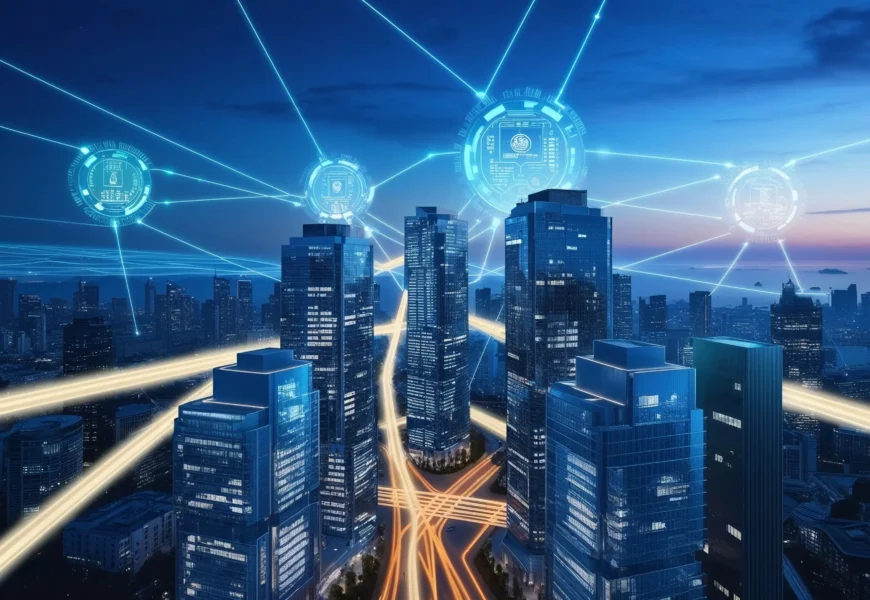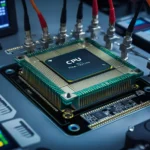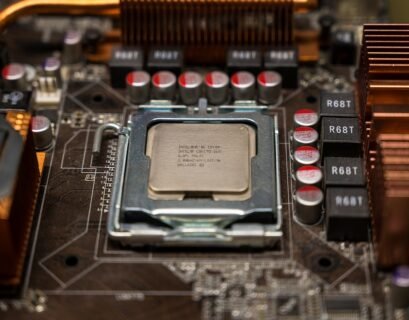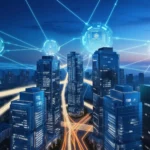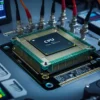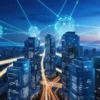Introduction
The concept of smart cities has evolved significantly in recent years, driven by rapid urbanization, population growth, and technological advancements. As urban areas continue to swell, the need for effective infrastructure and services grows paramount. Enter Artificial Intelligence (AI), the transformative technology at the heart of smart city development. From data-driven decision-making to enhanced resource management and improved quality of life for residents, AI is set to redefine urban landscapes. This article explores how AI is shaping urban development and infrastructure, provides industry insights, highlights technical innovations, and evaluates future trends in smart city evolution.
Understanding Smart Cities
At its core, a smart city leverages digital technology to enhance performance and well-being through efficient services, sustainability, and increased engagement with citizens. Smart cities utilize a blend of IoT (Internet of Things) devices, cloud computing, big data analytics, and artificial intelligence to monitor, manage and optimize urban systems, including transportation, energy, waste management, and public safety.
The Role of AI in Smart Cities
Artificial intelligence plays a vital role in various domains of smart city development:
-
Data Management: Smart cities generate massive amounts of data from sensors, devices, and citizen interactions. AI algorithms sift through this data to extract actionable insights, identify trends, and predict future needs.
-
Urban Planning: AI assists city planners in creating sustainable urban designs by analyzing zoning regulations, transportation needs, and demographic shifts. Machine learning models can develop scenarios to guide infrastructure development.
-
Traffic Management: AI-equipped traffic management systems can analyze real-time traffic data, predict congestion patterns, and dynamically adjust traffic signals to optimize traffic flow. These systems not only reduce commute times but also lower emission levels.
-
Public Safety: AI technology can enhance public safety measures through predictive policing, surveillance systems, and emergency response optimizations. By analyzing crime patterns and response times, cities can allocate resources more effectively.
-
Energy Efficiency: Smart grids powered by AI can optimize energy distribution, manage peak loads, and integrate renewable energy sources. These systems contribute significantly to a city’s sustainability goals.
- Waste Management: AI-powered waste management solutions can improve recycling rates and waste collection efficiency by predicting waste levels in bins and optimizing collection routes.
Industry Insights
Current Trends
The integration of AI in smart city projects is a global trend, with cities in both developed and developing regions embracing the technology. Investments in smart city technologies are expected to exceed $2.5 trillion by 2025 according to various industry reports. Key trends shaping this landscape include:
-
Partnerships and Collaborations: Cities are forming partnerships with tech companies, academic institutions, and startups to leverage AI technologies. For example, several cities have collaborated with major cloud providers to develop smart city frameworks that enhance urban analytics and data sharing.
-
Emphasis on Sustainability: As environmental concerns rise, the emphasis on energy-efficient solutions that leverage AI is growing. Smart cities are increasingly focusing on transportation electrification, green energy sources, and waste reduction mechanisms supported by intelligent systems.
- Citizen Engagement: AI technologies facilitate greater transparency and participation from citizens. Through AI-driven platforms, residents can voice concerns, participate in decision-making, and stay informed about civic issues.
Challenges and Barriers
Despite the promise of AI in smart city development, several challenges persist:
-
Data Privacy Concerns: The extensive data collection necessary for smart city initiatives raises concerns about citizen privacy and data security. Ensuring compliance with regulations like GDPR is crucial to maintaining public trust.
-
Digital Divide: Access to smart city technologies isn’t uniform. Vulnerable populations may lack the digital literacy and resources to fully participate in smart initiatives, leading to disparities in benefits.
- Funding and Resources: Developing smart city infrastructure requires significant investment. Many cities struggle to allocate funding from their budgets while addressing pressing urban issues like housing and basic services.
Technical Innovations in Smart Cities
The convergence of AI with other technologies is fostering numerous innovations within the smart city realm.
IoT and AI Integration
The synergy between IoT and AI is foundational to smart cities. IoT devices collect vast amounts of data from sensors embedded in roads, buildings, transportation systems, and utilities. AI algorithms process this data to derive insights and optimize city management processes. For instance, smart streetlights equipped with sensors can adjust brightness based on pedestrian traffic, which AI detects through patterns in the data.
Autonomous Vehicles
Self-driving vehicles represent another area where AI is reshaping city infrastructure. They have the potential to reduce traffic congestion and enhance safety. Cities are investing in autonomous vehicle technology, implementing dedicated lanes and systems for these vehicles to integrate seamlessly into existing transportation networks.
Smart Energy Grids
AI-driven smart energy grids enhance the efficiency and reliability of energy distribution. These grids utilize real-time data to optimize energy consumption, integrate renewable energy sources, and enable demand-response capabilities. Through predictive analytics, energy providers can anticipate usage patterns and manage supply accordingly.
Disaster Management
AI technologies advance urban disaster preparedness and response. Predictive analytics can assess risks related to natural disasters or emergencies based on historical data, thus enabling cities to deploy resources effectively. AI-enhanced monitoring systems can analyze weather patterns and deliver warnings, improving response times in emergency situations.
Future Outlook: The Road Ahead
As we look toward the future of smart cities powered by AI, several key trends and developments are set to shape this evolving landscape:
Enhanced Data Analytics
With advancements in machine learning and data analytics, AI will provide even deeper insights into city operations. Predictive modeling will become more sophisticated, allowing urban managers to forecast population growth, resource needs, and emerging challenges well in advance.
Integration of 5G Technology
The rollout of 5G networks will revolutionize smart city capabilities. With its high-speed communication and low latency, 5G will enable faster data processing and more efficient deployment of IoT devices. This upgrade will enhance real-time communication between systems, allowing cities to operate more cohesively.
Autonomous Infrastructure
AI will design infrastructure equipped with autonomous capabilities, enhancing urban services further. For example, trash collection trucks may operate autonomously based on real-time waste analytics, optimizing routes and minimizing human labor. Smart transportation systems could allocate vehicles dynamically based on real-time demand.
Emphasis on Equity
With a growing understanding of the impact of the digital divide, the future of smart cities will likely focus on ensuring equitable access to technology. Policies will be implemented to support underrepresented populations and bridge gaps in tech engagement and digital literacy.
Greater Resilience
As cities face the challenges of climate change, the integration of AI in smart city planning will address resilience against environmental stressors. This may include developing urban spaces that can adapt to extreme weather events, using AI-enabled predictive analytics for infrastructure maintenance.
Conclusion
The potential of AI to transform urban development and infrastructure is undeniable. As cities worldwide embrace the concept of smart cities, leveraging AI technologies will be critical in creating sustainable, efficient, and citizen-focused environments. However, achieving the full potential of smart cities requires collaboration among stakeholders, thoughtful policies addressing privacy and equity concerns, and sustained investments in innovation.
In a future marked by rapid urban growth and technological advancement, the synergy between AI and urban development will create opportunities to improve lives, optimize resources, and build communities that thrive. Together, we can harness the power of artificial intelligence to not only shape smarter cities but also foster a better quality of life for all residents, ensuring that the urban environments of tomorrow are resilient, inclusive, and sustainable. As we continue on this trajectory, it becomes imperative for city leaders, technologists, and citizens to engage, innovate, and adapt — ensuring our cities are not just smart, but fundamentally better places to live.
This comprehensive article outlines the transformative role of AI in smart cities, touching upon critical insights, innovations, and an optimistic but cautious outlook for future developments to come.

